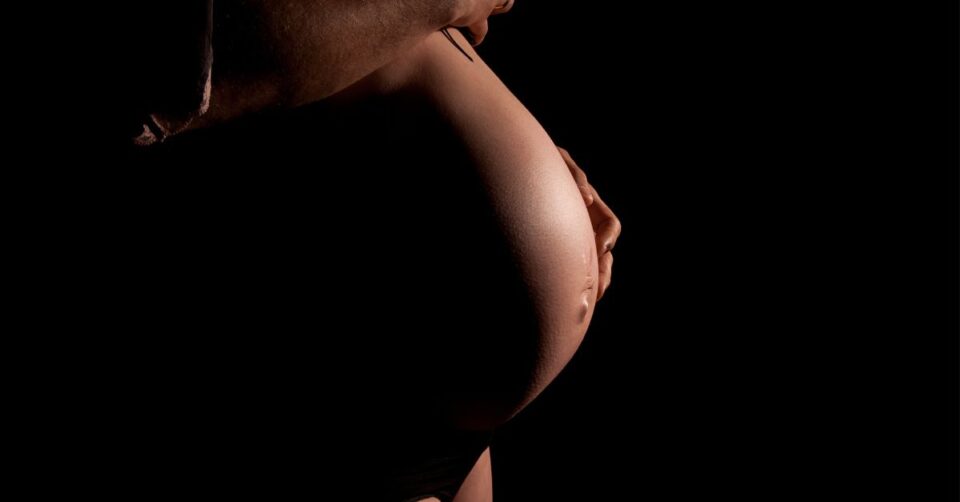Maternity Action’s Senior Policy Officer Annah Psarros reports on the charity’s latest research into new mothers’ experiences of maternity pay and the implications for maternal and infant health
Maternity pay in the UK is now worth less than half of the standard weekly National Living Wage (NLW). Maternity Action’s 2025 report on our Cost of Living on Maternity Leave survey ‘Pushed into Poverty’ highlights how these low income levels during pregnancy and maternity leave impact on the health and wellbeing of pregnant women, new mothers and their families and recommends raising maternity pay, with a view to closing the gap with the NLW.
Maternity Pay in 2025 is equivalent to 44% of the NLW and just over one third (35%) of women’s median weekly earnings. This includes both Statutory Maternity Pay (at the post-six weeks flat rate) and Maternity Allowance and impacts the majority of new mothers as only an estimated 13% receive occupational enhancements above the statutory minimum.
Currently, maternity pay policy is based on the assumption of a ‘breadwinner’ husband or partner, and of women’s own incomes as supplementary and nonessential. In reality, many women are the higher (or only) income earner in their household and this was also true of many of the more than 1,000 pregnant women and new mothers responding to our 2025 survey. Some women also told us their partners expected them to absorb more of the financial impact of maternity leave
‘For years I worried about how I would afford to take maternity leave and felt a huge sense of injustice at how it would impact me financially vs how my partner would be impacted. Even while we pay for things equitably and saved for our mat leave, he is still managing to have savings while I am eating into mine to get through with pitiful maternity pay.’
Overall, 97% of those responding to our survey reported worrying sometimes or a lot about money; and 59% reported impacts on their health and well-being during their pregnancy and maternity leave.
Around three in 20 women who responded to our survey had taken on additional work during pregnancy, sometimes against medical advice, in order to build up savings. Nearly three in ten women also told us that their partner had been unable to take as much leave as they would have liked and nearly two in ten were unable to take any, leaving many mums to cope alone after the birth.
‘I suffered with hyperemesis my entire pregnancy and could not afford to stop working although it was advised because I knew maternity pay was so low.’
‘My husband is full time employed but started uber driving on the weekends to cover costs. He was working seven days a week.’
Nearly three in five new mothers had needed to cut their maternity leave short because they could not survive on maternity pay. This frequently caused them emotional distress and concerns about bonding with the baby:
‘I was stressed about money, and this made me anxious, going back to work earlier than I would like to. It took a while for me to feel connected to my baby and once I did, I was returning to work. I couldn’t even afford to go part-time, and this meant I was off-sick a few months later due to depression/anxiety.’
The link between poverty and health inequity is well established by research. Recent research has also found correlations between health and temporary or sudden economic shocks. For example, Clark et al (2021), looked at impacts of ‘major prenatal economic shocks’ on birth weight, finding that babies whose mothers had experienced such an event during pregnancy were 40-70 g lighter than their peers. (A more detailed discussion of these issues can be found in Maternity Action’s 2023 report a Perfect Storm, and the accompanying literature review.)
For many women, a period of maternity pay effectively meant being ‘pushed into poverty’, with impacts on nutrition, mental health and general wellbeing. Almost three in five survey respondents had reduced the heating in their homes during pregnancy or maternity leave, half reported buying less healthy food, two in five were skipping meals and one quarter had foregone meals in order to feed children.
Perinatal mental health problems affect as many as one in four and pregnant women and new mothers and social isolation is a known risk factor. Many women told us that their efforts to limit outgoings on social activities and outings had negatively impacted on their emotional wellbeing:
‘I felt depressed and isolated because I couldn’t afford to do the things others were doing with their babies on maternity leave and couldn’t even meet friends for coffee when invited or pay for baby groups.’
Maternity Action calls on the Government to increase Statutory Maternity Pay, Maternity Allowance, Shared Parental Pay and Paternity Pay to the same level as the weekly National Living Wage. The Women’s Budget Group has modelled the costs of this: it would require only modest increases in welfare budget spending, partially offset by gains to tax and national insurance revenue and a reduction in Universal Credit. Full findings are in the appendix to our report.
You can join our call on the Government to increase maternity pay by taking action here.
Annah Psarros, Senior Policy Officer, Maternity Action
June 2025


